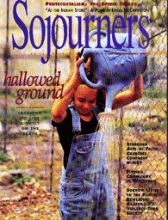Assuming capitalism and American society as we know it, is it possible for workers to have a meaningful voice in the activities of the market? Or are workers doomed to be tools, disposed of at will? In Can Workers Have a Voice?, Dale Hathaway attempts to answer these questions by developing three case studies of organizations that sided with workers during the massive plant shutdowns in Pennsylvania's Allegheny County during the early 1980s.
As a political scientist, Hathaway is deeply interested in analyzing the balance of power at work. In an analytical manner, he consistently refers to a "citizen-elite interaction matrix" to determine what level of power workers had in various situations. The matrix delineates what conditions tend to exist given the posture of the workers relative to the elites who control their livelihood. (The worst conditions exist when management is completely authoritarian and workers are non-mobilized. The best is when workers are mobilized and the elite is facilitative and open to workers' input.)
His matrix is helpful to visualize what workers can be looking for. It demonstrates that justice doesn't necessarily come with specific material gains. Justice requires a relationship that allows workers' voices to be heard systematically-a much more balanced relationship between owners and workers.
As pointed out so well in Frances Fox Piven's and John Cloward's Poor People's Movements, when people organize, they often are coopted by people in power, especially politicians, who derail the movement by emphasizing one particular means of meeting a particular demand. Then that one aspect becomes the cause. One concession thus silences the people, while the root issues remain unaddressed.
In an angry manner, Hathaway describes the experiences of three different groups who tried to give voice to workers being displaced by policies of an impersonal, uncaring corporation. His interview
Read the Full Article
